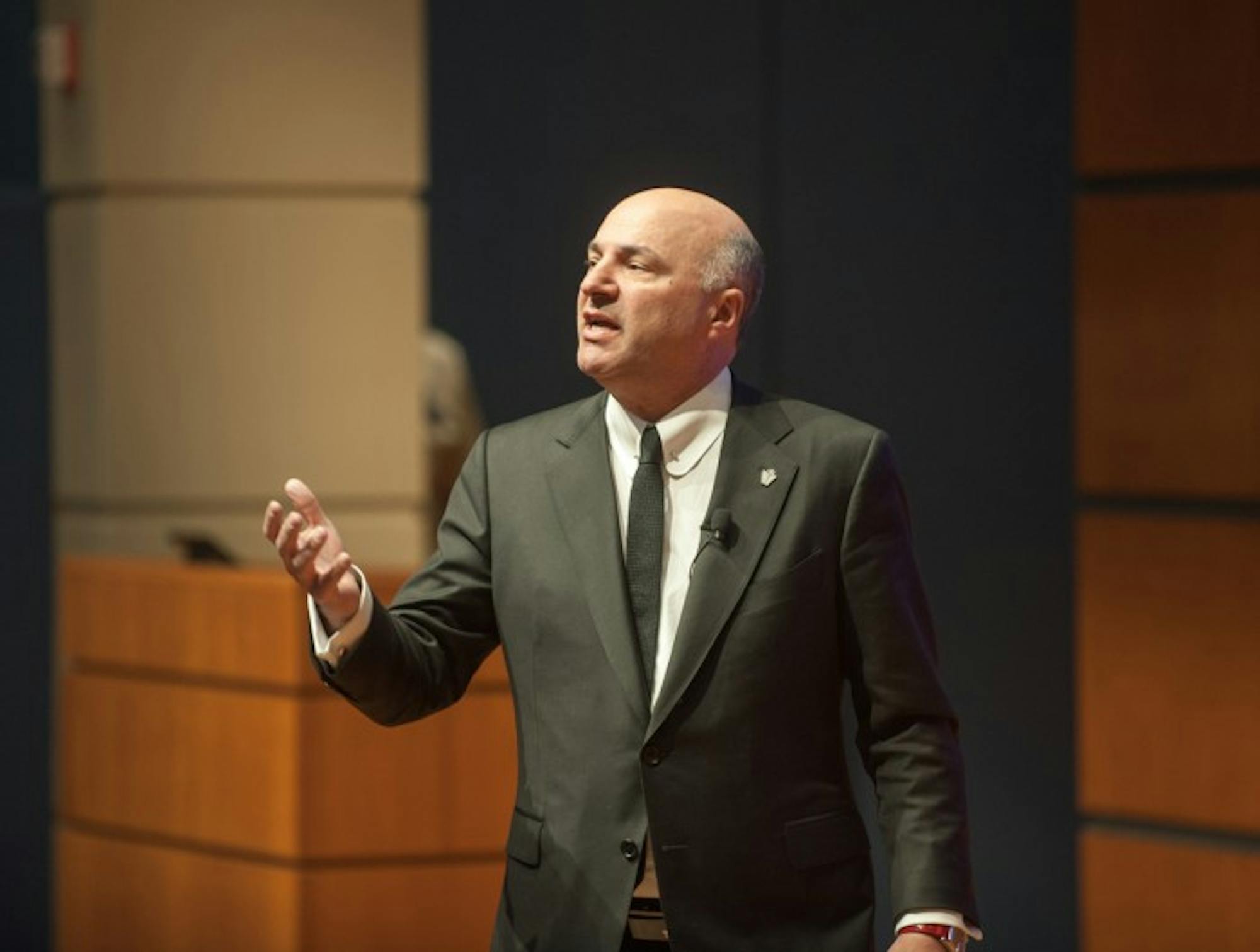University student entrepreneurs pitched their best business ventures to “Shark Tank’s” Kevin O’Leary, following a presentation on his life and tips for success in entrepreneurship in the Mendoza College of Business on Monday.
The talk, sponsored by the Mendoza College of Business and the Gigot Center for Entrepreneurship, filled the 350-seat Jordan Auditorium, as students and faculty came to hear O’Leary’s insights on entrepreneurship.
“After nine years and thousands of pitches, there’s a lot to be learned about what goes right and what goes wrong, and how you present your ideas to investors,” O’Leary said. “I don’t care whether you are an entrepreneur, a leader, a politician — these lessons matter in terms of your ability to communicate with people.”
In his experience judging pitches on “Shark Tank,” O’Leary said all of the successful pitches had three aspects in common: They articulated the opportunity in 90 seconds or less, they convinced their potential investors they’re the right person for the business and they knew their numbers, or found someone who did.
“The whole deal with a small business is to find out what makes your story compelling to your customer and stay in touch,” O’Leary said. “ … That actually is the secret to ‘Shark Tank.’ If you ever get there and you get to pitch to the sharks, and they offer you a very aggressive deal, it’s because they’ve figured out how valuable you are.”
Successful managers share a number of aspects, O’Leary said. In addition to creating a clear line of command, setting achievable goals, maintaining accessibility, delegating tasks efficiently and having superb time management skills, the best managers all use technology as a weapon.
“In the case of small companies today, the number one weapon is social media,” O’Leary said. “To engage social media properly, you have to have production skills, because just posting stuff with low production value gets you no traction.”
When O’Leary teaches business, he said he always talks about the “dark side” of business.
“In business, there are winners and losers — this is not ‘kumbaya,’” he said. “When you go into a market, you are trying to grow it, but you’re taking someone else’s share. It is a war. It’s not a social exercise. You can’t save the world — the DNA of a business was never designed to do that.”
Following O’Leary’s presentation, two teams and one individual student from Notre Dame were given a few minutes each to pitch their business ideas.
The first — “Elephant in the Room” — was pitched by seniors Kiely Wilcox and Alexandra Julian as a social media app for college campuses to ask anonymous questions on mental health.
“It’s a great service, I just don’t know that it shouldn’t be provided by the institution,” O’Leary said. “I don’t know if it’s a business — I think it’s a service.”
“Touch Base,” an online resource to pair undergraduate students and young alumni with older alumni, was pitched by freshmen Katherine Brown and Katie McGuckin before O’Leary criticized it for being too similar to LinkedIn.
“I’m not sure I’m loving it,” he said. “ … I’m trying to figure out how this is different from LinkedIn. There’s already a whole group of Mendoza grads who are already there. They have a platform and they’ve branded it and they have millions of other people they can look at.”
Senior Luis Escobar presented the final pitch for a product, “Takay Blends,” which uses bananas rejected from the market in his native Ecuador for their appearance and blends them with “superfood ingredients” to create a meal replacement smoothie.
“I see what you’re doing and it maybe could work,” O’Leary said. “ … This is not a zero — it’s got potential because people want healthy alternatives. Maybe. But I think you have a lot of work to do on the packaging.”
'Shark Tank' judge makes return visit to campus
Eddie Griesedieck | The Observer









